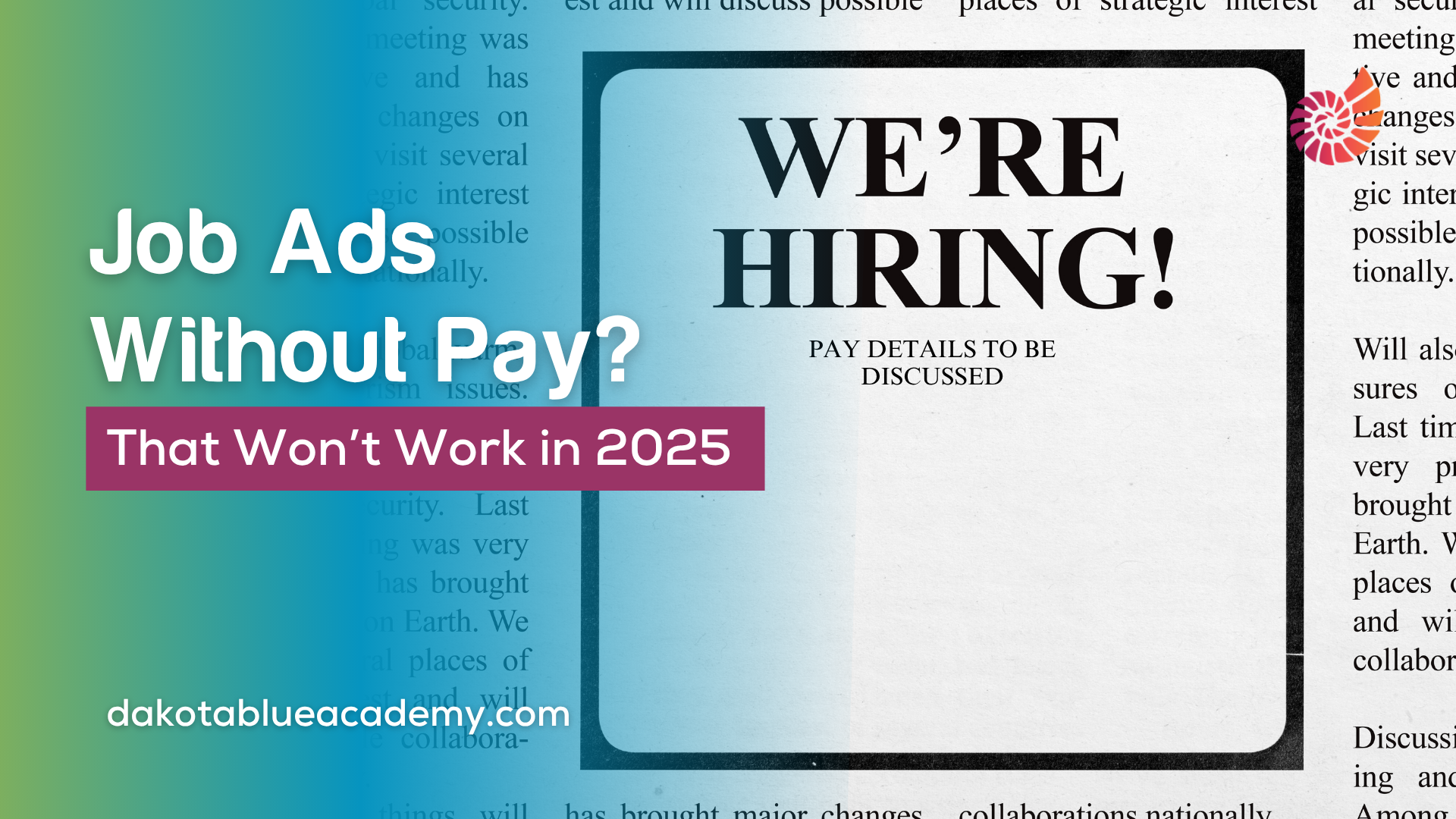
Job Ads Without Pay? That Won’t Work in 2025
18th June 2025
Not long ago, it was completely normal to post a job advert without mentioning pay. But times have changed fast. In 2025, candidates expect transparency, employees are comparing salaries internally, and platforms are nudging employers to include salary ranges as standard.
So why is this happening now? And if you’re a small UK business, does it actually apply to you?
Let’s break it down.
EU Rules Are Leading the Way, Even If You’re Not in the EU
Back in 2023, the EU brought in something called the Pay Transparency Directive. It means businesses have to include salary ranges in job ads, explain any pay differences between people doing the same role, and let employees ask about their pay. These rules will need to be fully in place by 2026 in every EU country.
Now, you might be thinking, “We’re not in the EU anymore, so does this really matter?” The answer is yes .... it still does. Here’s why, if you hire anyone in the EU (even remotely), you’ll need to follow these rules. Plus, jobseekers in the UK are watching what’s happening elsewhere and they’re starting to expect the same level of openness here. On top of that, there’s a real chance the UK could bring in similar rules down the line, especially with all the focus on closing pay gaps and improving fairness at work.
So, while you’re not legally tied to the EU directive, the ripple effect is very real. Pay transparency is picking up speed and it’s something UK employers need to keep an eye on.
Candidates Now Expect Salary Info Upfront
Let’s be honest, if a job advert doesn’t show the salary, most candidates will scroll straight past it. It’s no different from asking about a product online and getting vague replies instead of a price. It’s frustrating, right? People want to know upfront whether the role fits their expectations. Including a salary range saves time on both sides and helps you attract the right kind of applicants from the get-go.
Plus, platforms like Indeed and LinkedIn actually boost the visibility of ads that include pay details, so being transparent doesn’t just build trust, it can help you reach more people too.
Gen Z Is Leading the Push for Openness
Younger workers, especially Gen Z, are challenging the idea that talking about pay is taboo.
They’re posting salary details on social media, leaving detailed reviews on platforms like Glassdoor, and openly discussing fairness. This generation expects transparency not just in recruiting, but also in how employers make decisions.
If your pay practices can’t stand up to that kind of scrutiny, it could impact your reputation, your retention, and even your ability to attract new talent.
Pay Comparisons Are Happening, Like It or Not
Even if you're not advertising salaries, your employees are still comparing them.
Whether it’s through workplace chats or online forums, pay conversations are happening and they’re rarely quiet. If people discover inconsistencies without clear reasoning, it can lead to frustration and disengagement.
Being open about how you set pay (and why) builds trust and helps prevent resentment.
Pay Transparency Builds Trust and Loyalty
At its core, transparency is about fairness.
When you show candidates and employees that you’re being upfront and equitable, you’re not just ticking a box, you’re showing that you respect their time, effort, and contribution. And in a competitive hiring market, that goes a long way.
So, What Should Small UK Businesses Be Doing in 2025?
You don’t need to launch a formal pay audit (unless you want to). But small steps now can put you ahead of the curve:
- Start adding salary ranges to job adverts, even if they’re broad
- Check for fairness across roles in your business
- Be ready to explain how you set pay (and be consistent)
- Watch for future updates, the UK may follow the EU’s lead
Get Ahead of the Cultural Shift
Pay transparency isn’t just a legal trend, it’s a cultural shift. Today’s candidates want clarity, and your current team wants fairness. If you’re open and prepared, it won’t just protect your business, it’ll help you attract, keep, and support great people.
Want to stay ahead of workplace changes like this one? Join Dakota Blue Academy for straightforward HR templates, help guides, and support made for small businesses like yours.


